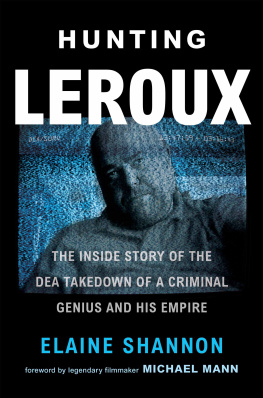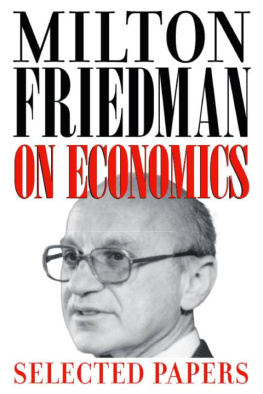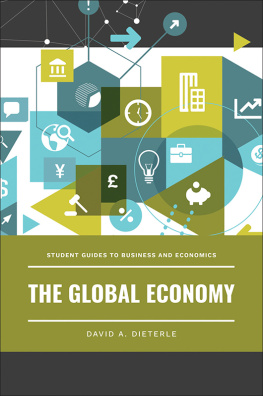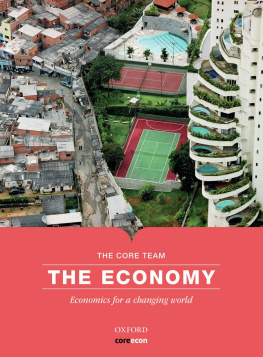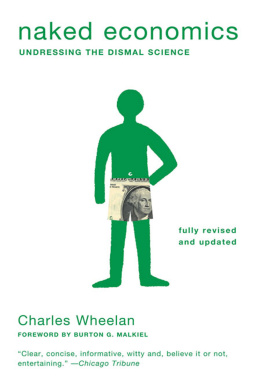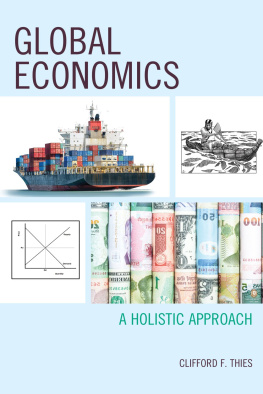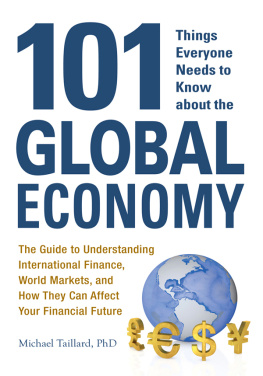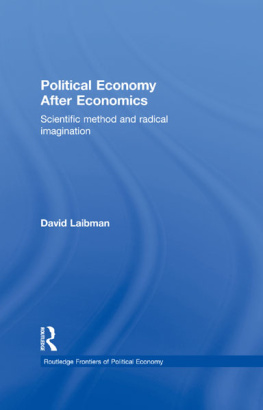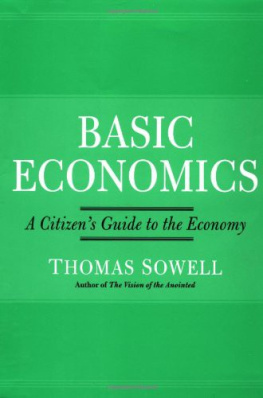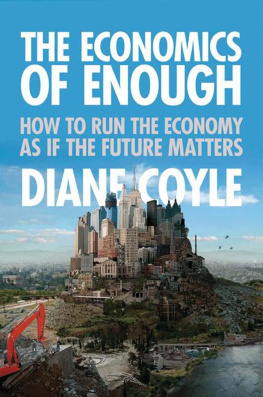ECONOMICS

ECONOMICS
Making Sense of the Modern Economy
4th edition
Edited by Richard Davies

The Economist in Association with
Profile Books Ltd. and PublicAffairs
Copyright The Economist Newspaper Ltd 1999, 2006, 2011, 2015.
First published in 2015 by Profile Books Ltd. in Great Britain.
Published in 2015 in the United States by PublicAffairs, a Member of the PerseusBooks Group
All rights reserved.
Printed in the United States of America.
No part of this book may be reproduced, stored in or introduced into a retrieval system, or transmitted, in any form or by any means (electronic, mechanical, photocopying, recording or otherwise), without the prior written permission of both the copyright owner and the publisher of this book, except in the case of brief quotations embodied in critical articles and reviews. For information, address PublicAffairs, 250 West 57th Street, 15th Floor, New York, NY 10107.
The greatest care has been taken in compiling this book. However, no responsibility can be accepted by the publishers or compilers for the accuracy of the information presented.
Where opinion is expressed it is that of the author and does not necessarily coincidewith the editorial views of The Economist Newspaper.
While every effort has been made to contact copyright-holders of material produced or cited in this book, in the case of those it has not been possible to contact successfully, the author and publishers will be glad to make amendments in further editions.
PublicAffairs books are available at special discounts for bulk purchases in the U.S. by corporations, institutions, and other organizations. For more information, please contact the Special Markets Department at the Perseus Books Group, 2300 Chestnut Street, Suite 200, Philadelphia, PA 19103, call (800) 810-4145, ext. 5000, or e-mail special.markets@perseusbooks.com.
Library of Congress Control Number: 2015948025
ISBN 978-1-61039-616-5 (EB)
First Edition
10 9 8 7 6 5 4 3 2 1
About the editor
RICHARD DAVIES was The Economists Economics Editor until July 2015, when he left to become special economics adviser to the UK Chancellor of the Exchequer, George Osborne. Before joining the newspaper, he worked at the Bank of England, where he managed teams covering international economics and the financial sector. He was a lead author of the banks Financial Stability Report, covering the stability of the banking sector. He also worked on secondment at the Bank of Canada in Ottawa. He began his career as a microeconomist, working for a private-sector consultancy, and then as a government antitrust economist at the UK Competition Commission. His academic research has been published in the Journal of Money, Credit and Banking and the Journal of Financial Stability, and he has held a lectureship at Lincoln College, Oxford, where he taught economics.
Contributors
Ryan Avent is The Economists news editor.
Henry Curr was The Economists Britain economics correspondent and is now US economics correspondent, based in Washington, DC.
Greg Ip was The Economists US economics editor, based in Washington, DC.
Zanny Minton Beddoes was The Economists economics editor until 2014 and has been the newspapers editor-in-chief since 2015.
Simon Rabinovitch is Asia economics editor of The Economist, based in Shanghai.
Paul Wallace is The Economists Europe economics editor.
Callum Williams is The Economists economics correspondent.
Introduction: the everday science
LIFES BIGGEST PROBLEM is a simple one: we cannot do everything. Sometimes it is nature that holds us back. Millions of children dream of life as an astronaut, but the truth is that even the hardest working will find their physical and mental capabilities mean they fall short of NASAs requirements. Sometimes it is low income or wealth that stops us getting what we want: desires for the latest gadget, outfit or car are stymied when wages are meagre and credit scarce; buying a house is tough without a big deposit. Some face far fewer constraints, but in the end even those with the sharpest minds, rudest health and fattest wallets will run out of time. Whatever the reason, scarcity of natural and economic resources is unavoidable. Dealing with these shortages is a task every human shares.
Scarcity means that to do our best we must make decisions that involve trade-offs. Take education. Teenagers must decide whether a university degree and the debts that it will bring justify gains received in the distant future. Business is a game of trade-offs too. A shopkeeper deciding what to do with the monthly takings must choose between the comfort of a healthy cash cushion and the riskier choices building up inventory or hiring new staff needed to win more customers. Running a home means facing a series of finely balanced decisions: whether to spend or save, to work or take a holiday, to choose a fixed or floating-rate mortgage.
Economics is the study of trade-offs. A mongrel subject that has borrowed from hard disciplines like mathematics and physics, and from softer ones like history and psychology, it can be hard to pin down. As this book makes clear, what unifies economics is the problem of scarcity, the trade-offs scarcity forces us to make, and how when they work well markets can help allocate scarce resources efficiently. The articles in this collection cover everyday puzzles, from how best to play the lottery to why people talk in quiet carriages. They also cover problems facing states, from whether fines or prison are the best way to deter crime to why we seem unable to avoid bank crashes. The common thread is why, when faced with a tricky trade-off, people make the choices they do and how they might make them more wisely.
Economies in crisis
Perhaps the most pressing global shortfall is a scarcity of income. In 2014 the value of output across the world global gross domestic product (GDP) was around $75 trillion. With the worlds population estimated at a little over 7 billion, each person would get around $10,700 if GDP were divvied up equally. Yet for many that amount is a dream. Around one in seven people live in extreme poverty. For those 1 billion, economic constraints are sharp: they survive on less than $1.25 a day, or $450 per year. At this level scarce resources become a constraint on life. In low-income countries 40% of recorded deaths are of children under the age of 15, whereas in advanced countries just 1% die so young. Poverty-stricken people lose their lives in avoidable ways, with AIDS, malaria, tuberculosis and diarrhoeal illness killing 6 million people in low-income countries in 2012.
Much of this is a problem of resource allocation. Extreme poverty often means a lack of food: of the 805 million undernourished people in 201214, 791 million live in developing countries. Their diet, short on calories and protein, saps energy, destroys muscles and makes them susceptible to disease. At the same time, those living in advanced countries throw away 222 million tonnes of food a year. The binned meals are worth an estimated $400 billion, more than the entire food production of sub-Saharan Africa. If that money were sent to the worlds poorest, it could provide $400 a year or $1.10 a day. Extreme poverty would be eradicated. If the global economy is a machine for allocating scarce resources, the economics of food suggest something is badly wrong with it.
Next page




